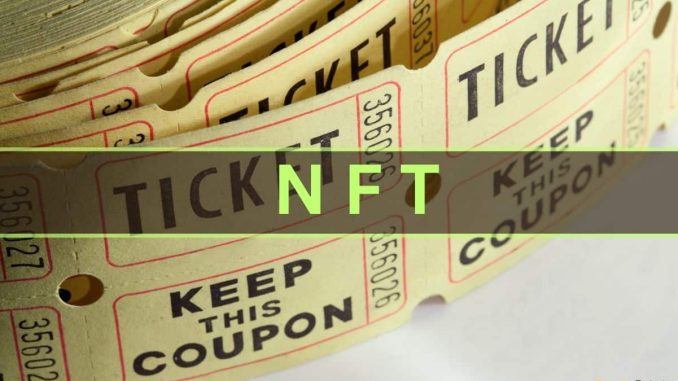
NFT sales have had a rocky start in 2023 but the underlying technology still holds plenty of utility. Ticketing is an interesting yet underdeveloped facet of the NFT space. It stands out as a promising frontier for NFTs in the ever-evolving world of digital advancements.
As a noteworthy application of NFTs, NFT tickets play a significant role in signifying ownership and facilitating access to exclusive experiences and events. These digital tickets serve as tangible proofs of entrance, covering a wide spectrum of events, including theme park attractions, sporting events, and live concerts.
By providing verifiable proof of ownership and authenticity, NFT tickets offer the potential to revolutionize digital authentication and enhance the user experience.
NFT Tickets vs Traditional Tickets
The rise of NFTs and their applications in ticketing systems has sparked interest and conversations across various industries and stakeholders.
According to former Alibaba executive Toby Rush, brands and events alike have adopted NFTs into their ticketing processes, reaping rewarding results for both customers and organizations over the past couple of years. The trend is catching fire, captivating a diverse range of stakeholders in what is being touted as an innovative and mutually beneficial landscape.
While speaking with CryptoPotato, Rush said the traditional ticketing industry is plagued by several problems for decades, from scalpers ripping off honest fans out of thousands of dollars for Super Bowl tickets to scammers selling fraudulent tickets at the recent 2023 NBA finals. The number of physical ticket fraud cases, too, is growing at an alarming rate. Rush believes NFT ticketing can address this.
“Since NFTs are verifiably unique and their veracity can be easily confirmed on-chain, counterfeiting them is simply impossible in the traditional sense. As for scalping, while profit-seekers can sell NFT tickets on secondary markets at inflated prices, these tokens can also be programmed to incur fees or royalties.
This means organizers can at least get a cut of every secondary sale, unlike traditional ticketing, where scalpers are the only ones to profit from resales.”
NFT Tickets Not Designed as Speculative Asset
NFTs are volatile. There’s always a possibility of a drastic fall in an NFT ticket’s value just before the event. But Rush explains that NFT-based tickets are not designed to be a speculative asset and are not dictated by the market but by the event organizers themselves.
“As such, it is important to differentiate between NFTs as a speculative asset – where an NFT is connected to a speculatively valued piece of art, for example – and NFTs used as a digital representation of goods.
When it comes to ticketing, NFTs can be used as proof of provenance for cryptographically verifiable access to certain events, so they do not inherently hold value unless tied to something valuable.”
The exec further added that the only way NFT tickets’ prices could fluctuate independently is on secondary markets, in which case a seller could set a price ceiling on one, for instance.
This will let the smart contract prevent that NFT ticket from being resold for a higher amount, thereby discouraging ticket scalping and “ensuring that the most deserving fans can access affordable tickets, even if they are being resold on the secondary market.”
Addressing Bottlenecks and Steering Clear of Scams
NFT tickets are still an underdog but have their fair share of bottlenecks that need addressing. Limited accessibility is a major hindrance to their adoption due to their very technical nature. High gas fees associated with buying and selling are yet another factor. But both of these issues can be solved on the technical level, Rush said in a statement.
The ex-Alibaba executive added that scams concerning NFT-based tickets are very few. But one such is to create similarly named “lookalike” tokens and try to sell them as the “real thing.”
It’s still quite easy to avoid this type of fraud, Rush added, which can be done by simply verifying who issued the tokens in question. Smaller/suspicious marketplaces should also be avoided as an added security step. He also encouraged individuals to always purchase NFTs tickets directly from the issuer.
Rush highlighted the need to exercise vigilance in their responsibility to facilitate secure user interactions within this nascent technology. Phishing scams, for one, have been exemplified in the NFT space. The exec added,
“Issuers can advise users to never click on suspicious links, attachments, or pop-ups and always verify URL domain names, email addresses, and social media handles to ensure authenticity.”
No Reason for Regulatory Threat
The NFT market may have hit the summer slumber, but the post-pandemic shakeup that spurred an explosion has prompted regulators to point out an array of potential risks that still looms large, encompassing concerns over consumer fraud, money laundering, and the evasion of sanctions.
Rush, who is currently serving as the CEO and co-founder of Redeem, believes there shouldn’t be a regulatory pushback.
He explained that since NFT tickets “do not hold any intrinsic value by themselves but rather serve as proof of ownership for other physical commodities, such as access rights, they can’t be considered financial assets, so there is no reason for financial regulators to get involved or push against them.”
Binance Free $100 (Exclusive): Use this link to register and receive $100 free and 10% off fees on Binance Futures first month (terms).
PrimeXBT Special Offer: Use this link to register & enter CRYPTOPOTATO50 code to receive up to $7,000 on your deposits.




Be the first to comment